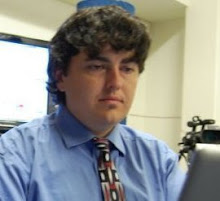Fire Department equipment went on-line only three days prior to heart attack incident
Humboldt Sentinel
12/11/08
By Sentinel Staff
EUREKA – Fire Department personnel successfully revived a patient in cardiac arrest on Sunday, thanks in part to newly-purchased state of the art equipment.
While EFD fire captain Chris Emmons gave partial credit to bystanders on scene who administered CPR to the unnamed patient, the Automatic External Defibrillator in use restored the heartbeat and provided the time needed for City Ambulance of Eureka to arrive and provide advanced life support measures.
EFD announced the purchase and placement into service of a fleet of new automatic external defibrillators on Dec. 4, which was made possible because of the City Council’s decision to replace the old defibrillators in this year’s budget process
“Even during hard times, it is often necessary to replace critical components of the basic response capabilities so that Eureka Fire can ensure efficient delivery of basic services to the citizens of Eureka,” EFD fire captain P.J. Lynch stated in an EFD release.
The new defibrillators assist EFD in its effort to remain current with CPR guidelines as recommended by American Heart Association in 2005. These guidelines have given first responders within the region the ability to provide automatic defibrillation to adults and children between the ages of 1 and 8 years of age. Previous equipment carried by Eureka Fire did not have the capabilities of providing defibrillation to children.
New defibrillators were installed on all engines and the front line truck in EFD service. This ensures that even during the course of a major incident or disaster that EFD will have the basic equipment necessary to handle a patient who has suffered cardiac arrest and requires prompt defibrillation by emergency personnel.
According to EFD and the AHA, the four critical links in the chain of survival of this patient include:
- Early access to the 911 system
- Early bystander CPR
- Early defibrillation
- Early advanced care
If interested in learning CPR contact the American Red Cross or your local Fire Department.
Thursday, December 11, 2008
Subscribe to:
Post Comments (Atom)

No comments:
Post a Comment